“One job, one standard” — the recruitment mantra for MDC’s Protection Division — means all agent candidates, male and female, must meet the same standards of excellence to qualify for the job. New recruits Hayley Honeycutt, Sarah Foran, and Crystal Poole say they wouldn’t have it any other way.
What does it take to be a truly outstanding conservation agent?
Many people in the profession would say “a love of the outdoors,” “the willingness to enforce the Wildlife Code of Missouri (the Code) without fear or favor,” or “an enjoyment of people and the willingness to help them.”
What we know for certain is that you don’t have to be a particular gender to excel in the profession.
Men and women alike have done the job and have done it well. For many young people, pursuing a career as a conservation agent is the perfect way to blend their enjoyment of the outdoors with their interest in law enforcement.
Historically, however, women have been underrepresented in MDC’s Protection Division.
It wasn’t until 1975 that the first female conservation agent, Jill Cooper, was assigned to the Kansas City area. Currently, 19 of MDC’s approximately 197 agents who are peace-officer certified — about 9.6 percent — are women.
Protection Division Chief Larry Yamnitz attributed the low recruitment numbers to a lack of encouragement — something he wants to reverse.
“We’re putting in extra effort to make sure everyone knows they have a chance at doing this job,” he said. “It can be dangerous. But women in law enforcement, across the country, have shown they can work side by side with men,” he said. “We’ve come a long way. Now our goal is getting people interested in coming to our department.”
Field Chief Randy Doman said Protection Division leaders hope more women will consider resource law enforcement as a viable career choice, with room for upward mobility into leadership roles.
“This job is for everybody,” he said. “The office is wonderful — Missouri’s great outdoors.”
As licensed peace officers of the State of Missouri, conservation agents are charged with enforcing the rules of the Code and other state and federal laws. The job can be risky because violators are almost always armed. But most agents will say the benefits — flexible schedules, meeting interesting people, and spending time in Missouri’s most majestic places — outweigh the risks.
Getting the job isn’t easy. In years past, it wasn’t unusual for 1,000 people to apply for 12 open positions.
Accepted applicants become candidates who must pass muster at MDC’s training academy. There, they receive 26 weeks of intense training in all facets of law enforcement and resource management. Those who make the grade win county assignments and become the face of conservation in their communities — enforcing the Code and helping the public with issues such as nuisance wildlife and land management. Duties and responsibilities include law enforcement, public relations and education, wildlife management, fisheries management, forest management, and other MDC activities.
For many conservation agents, the job is a calling. Last spring, three women heard that call and joined the 2017 training class.
The Dream of a Lifetime
Serving as a conservation agent has been Sarah Foran’s dream since she was 10 years old. That’s when a conversation with an agent left her awestruck.
“That uniform was the coolest thing I’d ever seen,” she said. “I said to myself: ‘I want to wear that uniform, and I want to have that job.’”
From that point on, her every career move has been aimed at achieving that goal.
A graduate of the University of Central Missouri in Warrensburg, Foran earned a Bachelor of Science degree in biology, with an emphasis in conservation enforcement, in 2015.
As was the case with her peers, her willingness to volunteer opened doors. One of her first gigs was serving as a Protection Division volunteer in the St. Louis, Kansas City, and Central regions. Ultimately, she logged 1,000 hours as a volunteer. Subsequently, she was hired for part-time positions in MDC’s Forestry and Wildlife divisions. As a Forestry Division employee near Warrenton, she joined one of the crews, eradicating invasive species and mowing fields. Later, with the Wildlife Division near Elsberry, she helped maintain MDC areas by patrolling for litter, wielding a chainsaw to clear hiking trails,
and administering 3 a.m. duck-hunting draws.
The youngest of four children and the first to graduate from college, Foran said her family — who encouraged her to hunt and fish — always supported her dream. But she knew from the beginning it wouldn’t be easy.
“I knew I would have to do more than just get a degree. It takes good interpersonal skills and field experience,” she said. “But you have to fight for what you want.”
Foran applied to the academy twice; she was accepted on her second attempt.
“My mom knew I was headstrong,” she said. “And my dad is excited to say, ‘My daughter is a game warden.’”
Whatever it Takes
Crystal Poole can’t remember a time when she wasn’t interested in conservation.
“I couldn’t even tell you when it started,” she said. “It’s been a lifelong ambition. This is what I’ve always wanted to do. Since I was a little kid, becoming a conservation agent has always stuck with me.”
As a college student, she explored the possibility of joining the military or law enforcement. But she always felt a career in conservation was her first and best love.
In college, she signed up for any training she thought might facilitate an outdoorsy career. She’s versed in geographic information systems. She is dive-certified. She knows how to immobilize an animal with a dart gun.
And, like Foran, Poole took a part-time job with MDC’s Wildlife Division, helping out at Pony Express Conservation Area. Poole, now 23, had to overcome some skepticism. Her father was supportive of his daughter going into law enforcement or the military, but he worried the MDC hiring process would prove too competitive.
“He wanted me to have a backup plan,” she said. “So I took animal physiology and some other veterinary classes so I could apply to vet school.
But she didn’t give up. Instead, Poole interned with the U.S. Fish and Wildlife Service, trudging around in waders in the summer heat at Loess Bluffs National Wildlife Refuge in search of rare Blanding’s turtles. She pursued her own scientific inquiries, as well. “I set up my own study to trap flying squirrels,” Poole explained.
Speaking to women who want to pursue a career with MDC’s Protection Division, Poole said building your resume as much as you can helps.
She encourages any young women interested in the profession to volunteer with conservation groups and apply to work part time for MDC.
A Love of Community Law Enforcement
Unlike Foran and Poole, Hayley Honeycutt came to her decision to apply for a conservation job later in life. She tried her hand at a few different jobs — working in a sawmill and as a mechanic and raising beef cattle — before settling into her current career path.
While studying agriculture at Missouri State University,
Honeycutt — for fun — participated in ride-alongs with the
Mountain View Police Department.
“I just absolutely loved it,” she said.
The experience galvanized her to join the Mountain View Police, where she worked three years. Surfing the internet one day, Honeycutt came across the application requirements for a conservation agent’s job. With an agriculture degree and a background in law enforcement, she knew she had a chance. “It was serendipitous. It all fell into place. God set me on a path I knew I needed to take,” she said.
For Honeycutt, being a conservation agent offers many more opportunities to interact with the community in a positive way. As a small-town police officer, she spent most of her time investigating incidents and writing reports. It was sometimes difficult to overcome many residents’ negative perceptions of police.
“As a conservation agent, I can be proactive. I like to build relationships with people,” she said. “I enjoy educating students in the schools and teaching hunter education courses.” Although comfortable in the role of enforcing the Code, Honeycutt is excited to move into a role where she can build a rapport with people in her community.
One Job, One Standard
All three women stressed the fact that the standards for men and women in the program are exactly the same. All the requirements —physical and mental — are the same for both sexes. — “I never felt like I should be treated any differently, and they don’t treat us any differently,” Foran said.
“We don’t need to be coddled,” Honeycutt added. “We have to be able to make good decisions. We can’t be out there, doubting ourselves.”
And the women showed they could be successful leaders. Honeycutt was selected by her peers to be the class president, and Poole won the trap-shoot contest. All three women passed the Evasive Vehicle Operation course on the first try. From Monday through Friday, students live in housing they share with Missouri Highway Patrol candidates. The experience is much like that in a military boot camp, where recruits eat, work, exercise, and study together nonstop.
It’s tough. It’s meant to be.
“There’s a TV there, but we never watched it,” Poole said. “We were so exhausted,” Honeycutt admitted. “There was always a test to take, always something we had to do.” The experience is challenging, but it’s intended to instill an esprit de corps, Yamnitz said.
“We need people who have a desire to do the job and meet the qualifications,” he said, noting the requirements are the same for every candidate. “It’s one job, one standard.” By the time it’s over, the candidates often feel like family. The men and women joke like siblings, but they’ve forged lasting friendships marked by appreciation, mutual respect, and support. “We’ve really grown close as a group,” Foran said.
What it takes to be an agent
The role of an MDC conservation agent is multifaceted. Not only do agents uphold and enforce the Code, they teach hunter safety courses, appear on local media, educate the public, and help with emergency rescues.
To be accepted for training, applicants must meet the following qualifications:
- Be 21 years old
- Have a Bachelor of Science degree in forestry, fisheries management, wildlife management, wildlife conservation, natural resources law enforcement, criminal justice, agriculture, education with science or biology emphasis, other related biological sciences, or closely related natural resource subjects
- Pass MDC’s physical fitness assessment
- For more information about the program, visit mdc.mo.gov/careers.
Conservation agent training consists of 26 weeks of intense instruction. In addition to classroom work, trainees participate in physically demanding practical exercises.
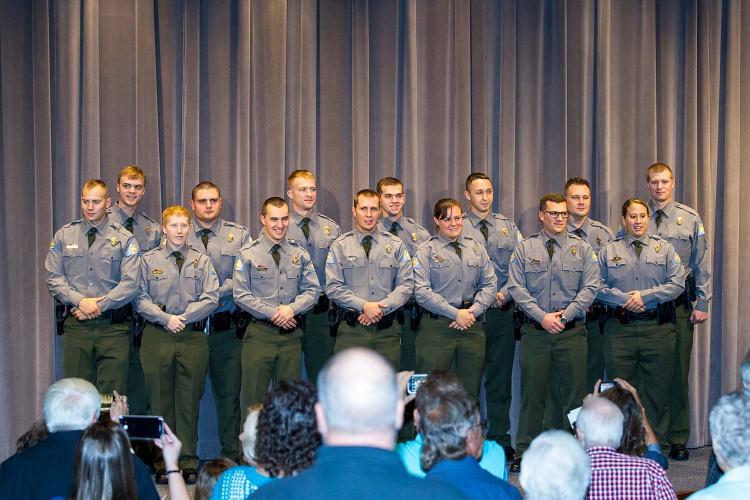
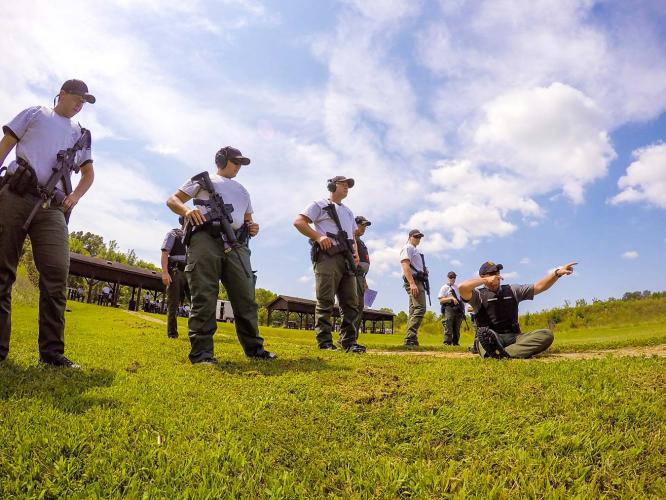
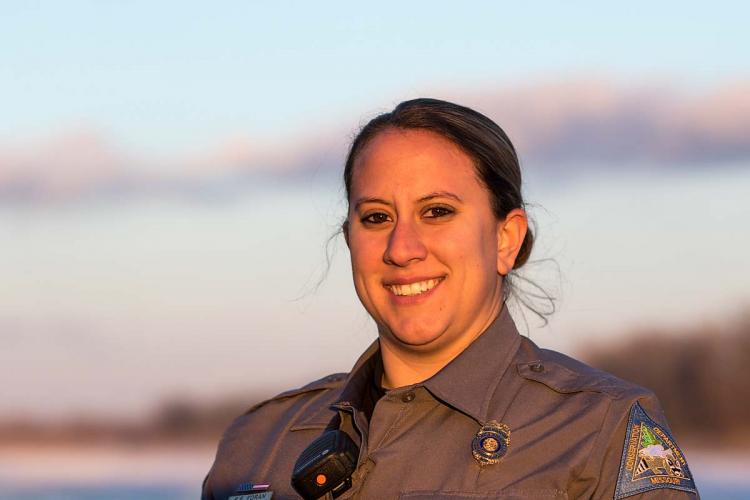
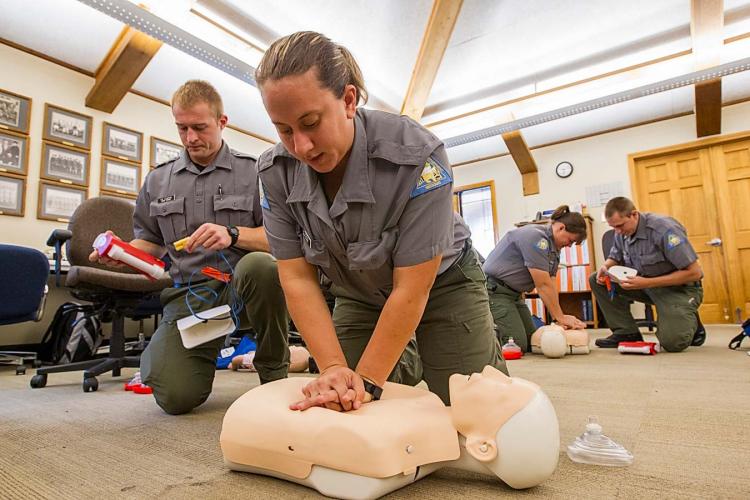

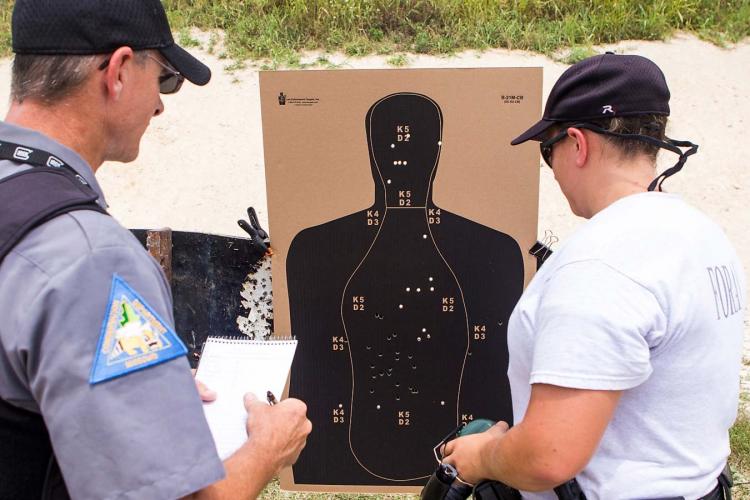
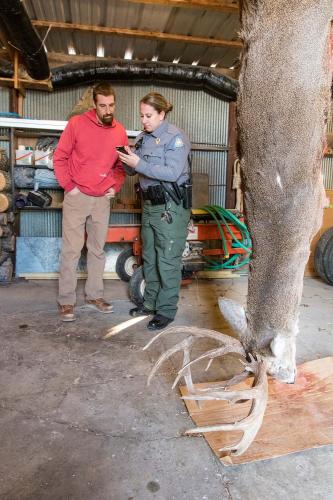
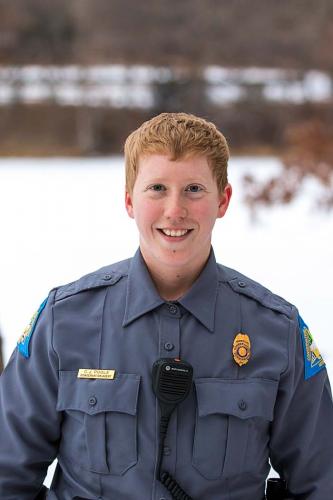
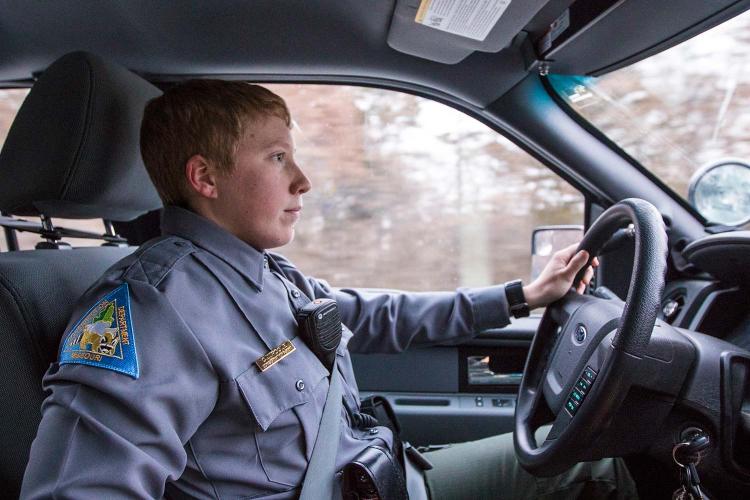
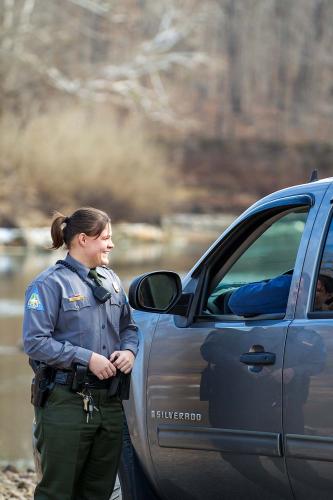
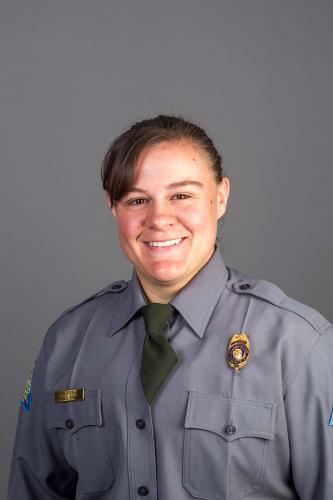


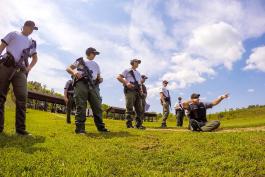
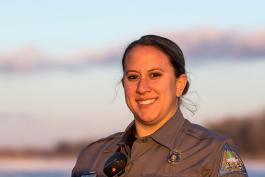
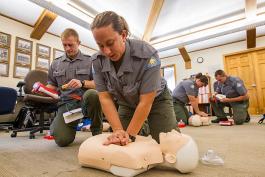

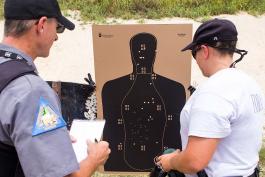
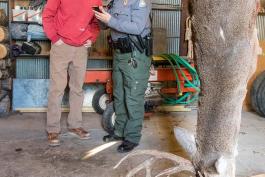
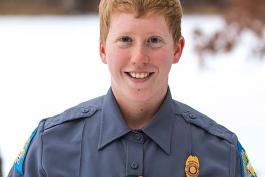
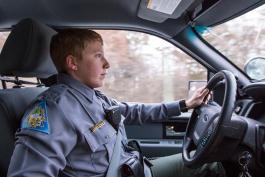
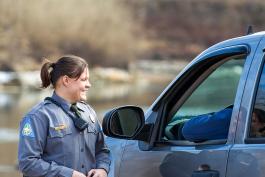
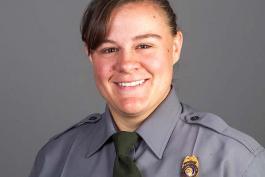

Also In This Issue


And More...
This Issue's Staff
Associate Editor - Bonnie Chasteen
Staff Writer - Larry Archer
Staff Writer - Heather Feeler
Staff Writer - Kristie Hilgedick
Staff Writer - Joe Jerek
Creative Director - Stephanie Thurber
Art Director - Cliff White
Designer - Les Fortenberry
Designer - Marci Porter
Photographer - Noppadol Paothong
Photographer - David Stonner
Circulation - Laura Scheuler






















